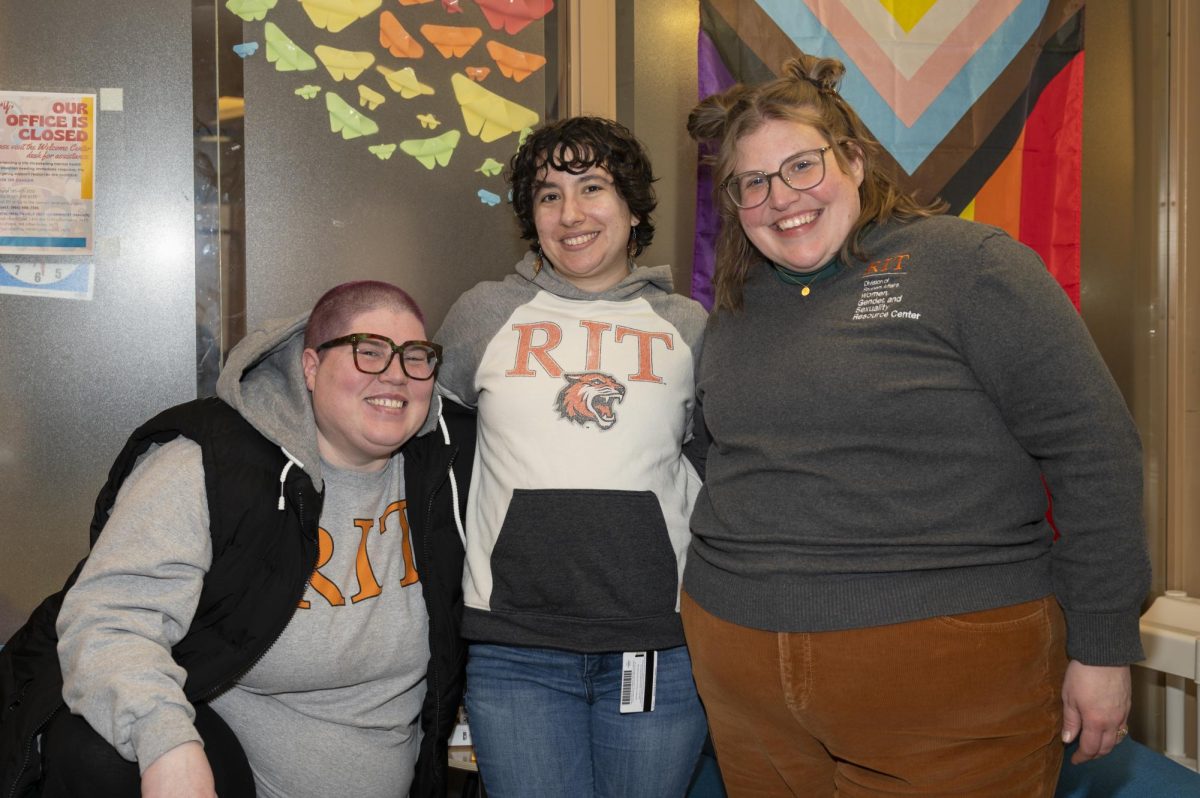Part of the allure of attending RIT is the co-op program, offering essential work experience to prepare for a post-graduate career. Many, if not most, international students pick RIT for that reason. However, political and legal actions by the Trump administration have caused uncertainty and fear for students on visas across the country. How is the global community at RIT impacted, and what does it mean for their visas?
What Visas Do International Students Use?
In the fall semester of 2024, RIT reported having 1,826 students enrolled on F-1 or J-1 visas, representing 100 countries.
F-1 visas authorize students to enroll in a U.S university However, they do not provide a pathway to permanent residency after graduation.. Students can decide to stay in the country after finishing their degree by applying to certain visa programs, depending on their professional background and field of study.
J-1 visas are provided to students participating in an approved program for teaching, research and medical education/trainings. The visa aims to promote the exchange of knowledge in education, science and the arts.
The Student and Exchange Visitor Program (SEVP) — an initiative monitored by the Department of Homeland Security — ensures government agencies have access to data regarding F-1 and J-1 recipients. RIT is a SEVP-approved school.
The Student and Exchange Visitor Information System (SEVIS) is a web-based database enabling SEVP-approved programs to report information. Megan Kless, the director of the International Students Service (ISS), explained how RIT complies with SEVIS.
“Every school authorized to enroll international students must maintain students’ records in SEVIS to demonstrate ongoing compliance with visa regulations,” Kless stated. “Things like enrollment status, address changes, employment authorizations, and program completions are reported in SEVIS to keep students in good standing with US immigration authorities.”
According to a report by the Institute of International Students, 1.1 million international students enrolled in U.S. universities in the 2024-25 academic year. Part of what makes international students invaluable to universities is that they are more likely to pay full tuition than domestic students, as most students on visas are ineligible for financial aid.
What Makes RIT Appealing to Students on Visas?
International students select RIT for its strong academic reputation and co-op programs. Edgar Lopez Villegas, a biomedical engineering student from Mexico on an F-1 visa, chose the university because of its career development opportunities and vibrant international population.
“I was especially surprised about the diversity the school has. It has a lot of international students and students from different ethnicities and backgrounds. I think that gives the school a lot of power, a lot of presence,” Lopez Villegas noted.”
Kless explained how STEM programs attract many international students to RIT.
“We welcome students from 100 countries, so we have a true wealth of diversity on campus. Individual reasons for choosing RIT are as unique as they are. That said, many are drawn to our strong STEM programs and our stellar graduate education.”
How Are Students on Visas Impacted?
For a student on an F-1 visa, maintaining their legal status comes with various rules and responsibilities. No statistics exist on the percentage of students using F-1 visas at RIT, but 59 percent of international students across the country are on such visas. Kless outlined some expectations, including the requirement of being a full-time student, following employment authorization — such as not working off-campus during freshman year — and maintaining a strong academic standing.
In an email addressed to the international community, ISS explained that they have not received advance notice about the status of particular students’ visas. The email confirmed that several RIT students have been affected, advising students to contact the ISS should their visa be rescinded or SEVIS account terminated before responding to government communication.
While the government has not released official statements explaining the reasons behind international students’ visas being revoked, it appears that some were targeted for activism or prior charges, however minor.
Should one of the university’s students lose their visa status, RIT can only take so many steps. Kless explained that RIT cannot stop the federal government from individual visa cases, which are typically carried out by officials at the US Departments of State and Homeland Security.
In light of the university’s limited mandate, ISS advises students facing immigration difficulties to seek legal advice, reaching out to the office if needed.
“We encourage students facing serious immigration challenges to seek qualified legal advice, and we want to meet with them to explore all avenues of support or resources, within ISS, across campus, or elsewhere,” the ISS explained.
What May Happen Next?
Many international students across the country who have seen their visas rescinded were not given notices in advance and/or explanations, which made it challenging to obtain legal representation. In a lawsuit against the Trump Administration, several students with revoked visas argued that they were denied due process.
On April 25, the federal government abruptly announced that they have restored international students’ visas, including those of RIT students. In the meantime, the Immigration and Customs Enforcement (ICE) will develop new policies clarifying what will determine the reasons behind visas being taken away. The move has spurred more questions and confusion.
It is too early to determine how the Trump Administration’s action impacts international student enrollment at RIT, let alone nationally, because of the unclear reasons behind visa revocation and, ultimately, restoration. Nonetheless, these changes have raised concerns among international students at RIT.
Villegas says he knows some peers who are fearful to fly out of the country to visit their families, citing what they heard about TSA checkpoints at the airports.
“I heard [from] a lot of people now that they can even check your cell phones,” Villegas said, referencing the TSA checking people’s social media activity.
In the meantime, RIT President David Munson sent an email explaining that the ISS will monitor SEVIS for students whose records have been deleted. Munson advised students to consult with ISS about whether to travel home or stay during the summer.
Even if the Trump administration does not revoke visas over the term, the damage already has been inflicted on RIT’s international student population. Will RIT continue to entice students from around the world if the school cannot anticipate the President’s actions?








